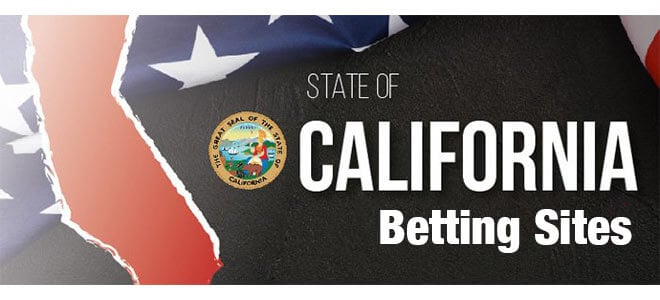Mobile Sports Betting California
California Senator Pulls Support for Sports Wagering Measure. California Senator Bill Dodd pulled support for SCA 6, a measure that could have legalized sports wagering in the state of California. The initiative was opposed strongly by California tribal casinos and California. Sports betting in California is not legal. Not yet, at least. An amendment to the constitution is due to be discussed and voted on at some point in 2020. If an amendment is approved, we could see sports. The state isn’t quite as forward in the sports betting industry, and finding a sportsbook in California that caters to your exact betting needs can be tricky. However, whether you live in Los Angeles, San Francisco or Sacramento, there are online betting.
California tribes filed a proposed ballot initiative Wednesday to amend the state constitution to allow for sports betting at Indian gaming casinos and licensed racetracks.
That the effort from a powerful coalition of 18 Native American tribes leaves out the state’s cardrooms isn’t surprising given the longtime animosity between the state’s two main gaming stakeholders.
But why are tribes, even when giving themselves a dominant position in the state’s sports betting landscape, not asking for online wagering? After all, mobile and online wagers make up about 75% of all sports bets made in New Jersey.
Comments made by California tribal leaders last month at the Global Gaming Expo (G2E) in Las Vegas provide insight into their perspective on sports betting and why they are wary of putting it online.
CA tribes fear mobile sports betting as gateway to iGaming

Gambling has become essential to tribes in the state. California is the nation’s largest Indian gaming state, with 69 Indian casinos and annual revenues totaling $7 billion. It’s the top revenue source for their tribal governments, providing jobs for their people and money to protect their interests.
Speaking at a panel on the next five years of tribal gaming, Pechanga chairman Mark Macarro expressed that mobile sports betting in itself, with its single-digit profit margins, didn’t pose a threat to Indian country.
However, he feared that, through an unintended consequence or a loophole, mobile sports betting could quickly evolve into full mobile casino gaming.
“If that were to happen, we think, in California, it could potentially be a disaster,” Macarro said. “So, we have a lot of tribal leaders in California who are worried about that.”
He added that California tribes had the same concern about online poker in the past, which is why Pechanga fought to defeat previous efforts to legalize online poker.
CA tribes want to take it slow with sports betting
Panelists spoke about not being in a rush to get in on the small profit margins they see in sports betting.
Sure, they would welcome any bump in revenue. However, with small gains and big risks, if it were up to them, they would rather wait five years to analyze the impact that sports betting has on casinos, particularly tribal casinos, nationally.
“Everyone seems to want sports betting, and it’s being led by the industry, by the sports leagues and by the media companies,” said Victor Rocha, president of the tribal gaming advisory firm Victor Strategies and owner/editor of Pechanga.net, who moderated the panel.
“The industry is saying ‘Go, go, go!’ and we’re saying ‘slow, slow, slow.’”
In announcing the proposed ballot measure, chairman Anthony Roberts of the Yocha Dehe Wintun Nation lauded the initiative as a “viable and measured path that provides Californians with the opportunity to wager on sports.”
“Measured” is the keyword.
Then why are they pushing a ballot initiative to legalize sports betting?
With the national momentum to legalize and regulate sports betting, tribes can’t deny that it’s coming to California eventually. Nineteen states and Washington, D.C., now have legalized sports wagering.

The ballot measure is a way for tribes to give Californians a way to legally bet on sports while maintaining control of how it’s rolled out.
“The last 12 years, there was a lot of talk about internet poker and internet gaming,” Macarro said. “Right now, it’s sports betting. Whatever comes next, we want to be a part of it. We want some sense of control about it so it doesn’t overtake us. We need to be in the mix. We need to position ourselves to be in the mix.”
Outside forces are pushing for sports betting. Assemblyman Adam Gray and Sen. Bill Doddauthored Assembly Constitutional Amendment 16 and are planning to hold the first hearing in the next month for all stakeholders to express what they want to see legal sports betting look like in California.
This is the way for the tribes to take control and allow legal sports betting to roll out at a pace with which they are comfortable.
“We’ve never seen anything like this go from nothing to something so big,” Rocha said. “It’s like the industry was waiting for it. You need to get in front of it because this is a much bigger issue than us. There are other people involved in it.”
Presence of sports leagues changes the dynamic
There was plenty of industry momentum for online poker as well, and California’s Indian tribes had the strength to delay it for a decade until it got to the point that the energy dissipated. Online poker received no consideration in California during the past two years.
Sports betting brings another stakeholder to the party in the professional sports leagues. There are 16 sports teams in California over the four major professional sports leagues.
They also are pushing for legalized sports betting in states across the nation, and they possess a great deal of influence themselves.
“We need to understand that it’s being pushed,” Rocha said. “This isn’t a normal fight. This is one where we’re getting resistance and pushback from people we’ve never really been on the battlefield against.”
It bears noticing that the tribal proposal does not include any league asks, such as an official league data mandate, even though many tribes have long-standing relationships with sports teams.
Online wagering will be a key discussion point in California
If the tribes are putting out their own initiative, rather than waiting for the legislature’s bill, shows anything, it’s that mobile betting in the state will be at the forefront of future legislative hearings.
Rocha stressed that the tribes in California won’t be pressured or forced into making decisions by online sports betting companies, such as FanDuel and DraftKings, wanting to enter the state.
“The industry needs to understand that we’re not going to roll over for you guys,” Rocha said. “Just because you want to get your business off the ground doesn’t mean we need to help you. We’re going to take our time and do it right.”

It’s not hard to find a place to gamble in California. The state features almost 100 card rooms and more than 50 tribal California casinos.
However, California is a house divided when it comes to legalized sports betting. At this point, America’s largest state has no definite timeframe for the introduction of wagering on sporting events instate. Proposals continue to surface though, which means interested parties abound.
California residents do have the option to play DFS and enter into sweepstakes type contests. DraftKings, FanDuel and FendOff Sports all operate within the state of California.
Win real cash prizes with sports contests in CA
At the center of this interminable delay are the competing interests of three stakeholders in the Golden State. The three entities in question are:
- Tribal interests
- Cardrooms
- Racetracks
At this point, California would have to pass a constitutional amendment in order to bring sports betting inside its borders. Due to language in a 2000 ballot initiative, the tribal casinos in California have claimed a de jure jurisdiction over all gambling types, including sports betting.
Recent movement on sports betting in California
Democratic Assemblyman Adam Gray of Merced failed to get traction with two previous sports betting proposals. Those included an assembly bill in 2016 and a constitutional amendment in 2017.
During the same time period, an advocacy group called Californians for Sports Betting announced its intention to push for ballot initiatives that would repeal the constitutional language from 2000 that placed so much power in the hands of Native American groups. Needless to say, the tribal interests were not amused. They used their political power to kill almost any mention of sports betting legalization in 2018.
Gray’s failed attempts thus far haven’t deterred him. On June 27, 2019, Gray, along with state Sen. Bill Dodd, introduced into the California Assembly and Senate ACA 16. The amendment would give the CA Legislature the power to authorize and regulate sports betting in the state.
For an amendment to become law in California, first, identical versions need to pass in both the Assembly and Senate by a 2/3 margin. It then must pass the desk of Gov. Gavin Newsom before going onto the ballot, where it needs a simple majority vote. If ACA makes it through both houses, it could arrive on the November 2020 ballot.
California tribes put a horse in the race
On Nov. 13, a coalition of 18 California tribes filed papers with the state attorney general’s office for a sports betting initiative of their own.
“The California Sports Wagering and Unlawful Gambling Enforcement Act” would allow sports wagering in tribal gaming casinos and licensed racetracks. It also includes a proposed 10% tax on gross gaming revenue from sports betting to be used for regulatory costs, public safety, education, and mental health programs.
The amendment would allow wagers on professional, college and some amateur sports. Interestingly, it would prohibit betting on high school contests and games involving California college teams, which will likely be a major point of contention. Another point of contention is the lack of inclusion of mobile or online gambling provisions.
The initiative would also strengthen the power of the California attorney general’s office to regulate gambling. The amendment, if passed as is, would also allow tribal casinos to begin offering roulette and craps.
Like ACA 16, the tribes’ amendment proposal would need to get through the California Legislature before making its way to the 2020 ballot. While it’s unlikely to gain the necessary approval in its current form, the tribal interest seems like a step in the right direction for legalized sports betting.
The largest sports betting market in the country
The AGA estimates Americans wagered $154 billion on sports in 2016. It also claims nearly all of those wagers were illegal.
Broken down by population, that would mean California’s approximately 39.14 million people bet an estimated $18.7 billion on sports in 2016. California is the largest state in America, so it would likely represent the largest sports betting market in the country.
According to Legal Sports Report, that activity would generate first-year revenues of around $100 million. While that figure is a drop in the bucket for California’s $180 billion state budget, it would still be a chunk of new income for a state with budgetary issues.
The wheels appear to be in motion for sports betting to go to a popular vote in 2020. What is less clear is whether it will be the California Legislature or the California tribal interests holding the reigns on regulation.
What would a legal sports betting market look like in California?
Based upon the various attempted proposals in the state, California sports betting would feature:
- Licensed gaming facilities could take live bets on sports. Online/mobile wagering may be off-limits, depending which body is overseeing regulations.
- Players wagering would have to be 21 or older as well as inside California’s borders to bet.
- There would be licensing fees andtaxes on revenues for operators.
- Wagers could be placed on professional, college and some amateur sports. If tribal interests get their way, wagering on games involving California college teams may be prohibited.
The biggest questions surrounding the future California sports betting market include who will be doing the regulating and which facilities will be authorized to accept wagers. With all the competing interests at play, these aren’t simple questions to answer.
Whether either or both of the most recent initiatives make it to the 2020 ballot remains to be seen. The biggest threat to getting sports betting legalized in the Golden State remains dispute over regulatory power and competing stakeholder interests.
The three stakeholder groups have shown no hesitation about contesting progress on bills that look to cut them out of the profits, no matter the cost. The tribes in particular have demonstrated willingness to go to great lengths also to protect their authority over gambling regulation.
Sports betting laws in the United States
Of course, in times past, the proposed sports betting bills had to contend with the Professional and Amateur Sports Protection Act (PASPA). PASPA became law in 1992, making Nevada the only state allowed to offer legal sports betting.
Mobile Sports Betting California Rules
In May of 2018, the US Supreme Court ruled that PASPA was unconstitutional and struck down the federal ban on sports betting. Now that the major hurdle is out of the way, the floodgates for state-regulated sports wagering have opened. California is already late to the party, but could be one of the next to join in.

Daily fantasy sports in California
Daily fantasy sports (DFS) can sometimes serve as an appetizer for sports betting in states. The relatively new industry shares many of the same characteristics. Its two main companies, DraftKings and FanDuel, are having little difficulty expanding their businesses into bona fide sports betting and gambling.
With regard to the Golden State, one half of the California legislature stood firmly behind a daily fantasy sports (DFS) bill in 2016. The bill breezed through committee hearings. It then came up one vote shy of passing unanimously in the California Assembly.
California Sports Betting Bill
From there, the Senate sat on the bill. It added an amendment in June. The bill headed to committee, where it died. The San Manuel and Morongo bands of Mission Indians that own and operate a pair of Native American casinos in the state voiced opposition.
Even with the legality of DFS in California still an open question, major operators continue doing business. Lawmakers seem disinterested in stopping them either.
This means there is no legal framework, fees, or taxes associated with DFS operations in California. However, these operations still accept California players, albeit by functioning in what amounts to a grey area.